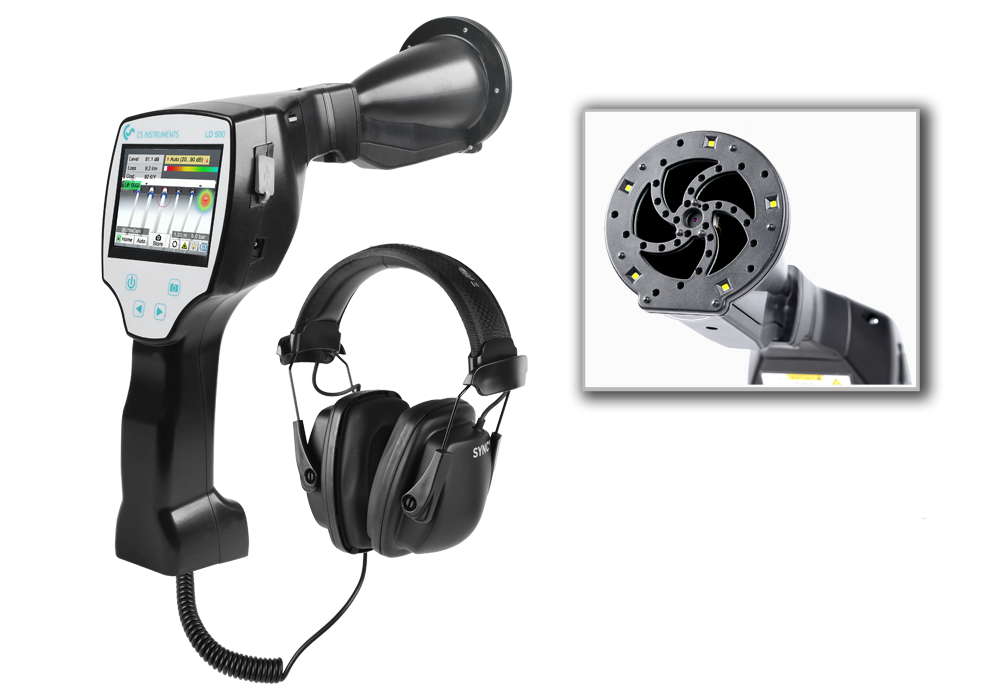
Ultrasound Camera UltraCam LD 500/510
uses 30 MEMS microphones for the Calculation and visualisation of the ultrasound image. The device also makes inaudible ultrasound audible.
Around 10% of total industrial electricity consumption is used for compressed air generation in industrialized countries, and in Germany the figure is as high as 14%. Leakages are the main factor for energy losses and most compressed air systems show losses in the range of about 20 % to 40 %, in bad systems even more than 60%. Fixing compressed air leaks is the most effective action for reducing the energy consumption. Compressed air leaks often waste energy 8760 hours (24 h x 365 d) a year and increase compressor run times, which also shortens maintenance intervals. Therefore, it is a must to detect and eliminate leakages frequently. Our LD-Series will give you all the function needed to detect leakages and measure the consequences in terms of energy consumption and wasted money.
Typical applications of our measuring instruments in this section are leakage detection in compressed air systems and leak testing of unpressurized systems.

uses 30 MEMS microphones for the Calculation and visualisation of the ultrasound image. The device also makes inaudible ultrasound audible.
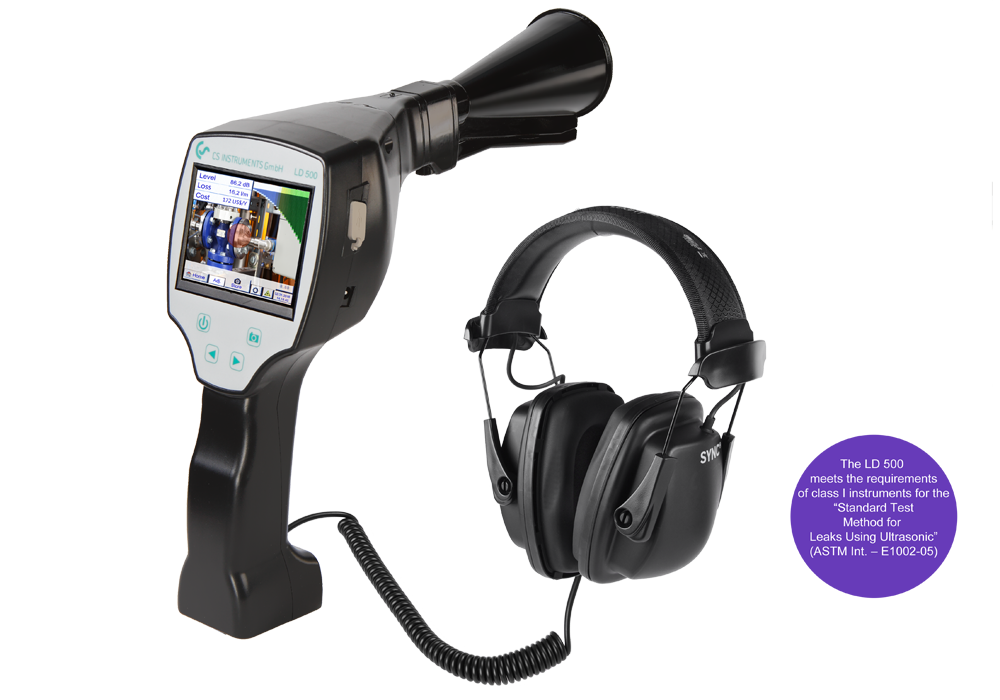
Create an ISO 50001 report with leak detector LD 500 with camera and leakage calculation (l/min and costs in €).
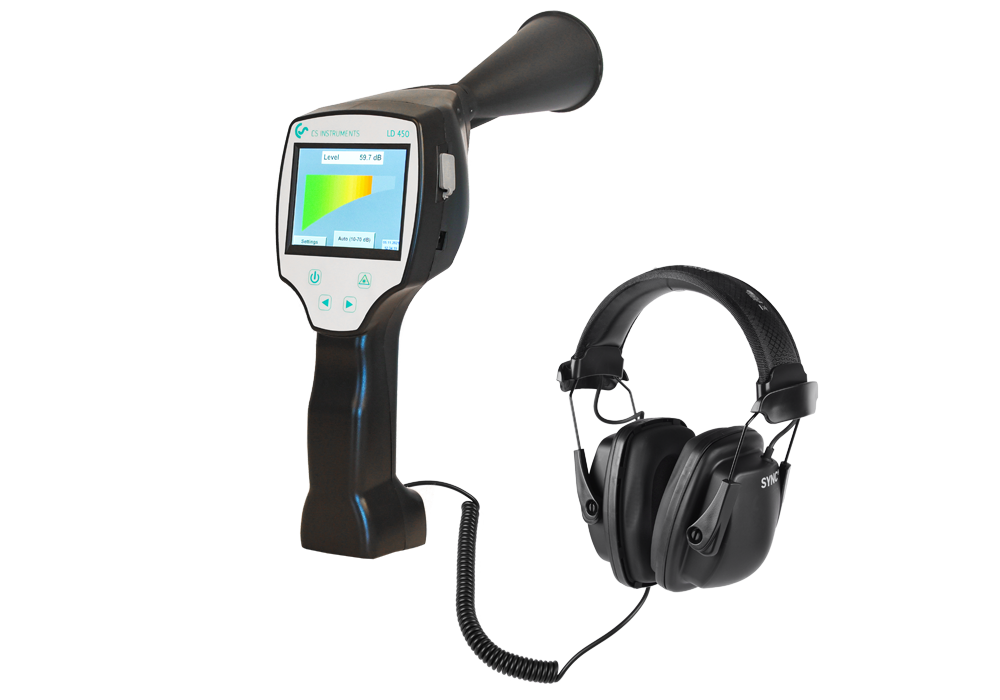
Leak detector for compressed air, gas and vacuum systems. Optionally as a single device or in a case set.
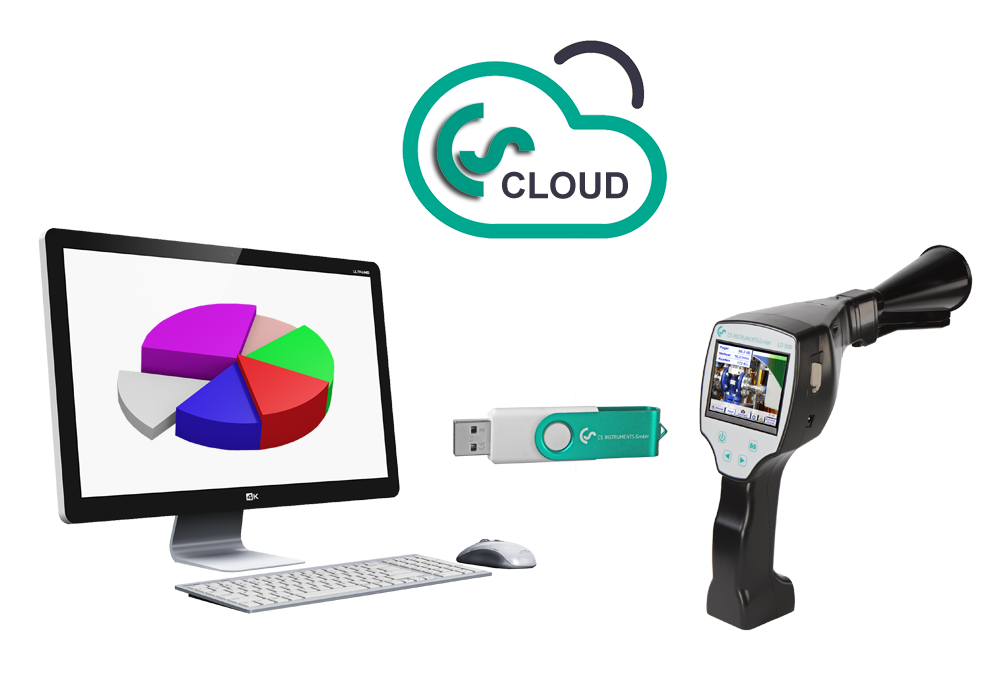
The CS Leak Reporter Cloud Solution combines the functionalities of the CS Leak Reporter V2 with a browser-based cloud system.
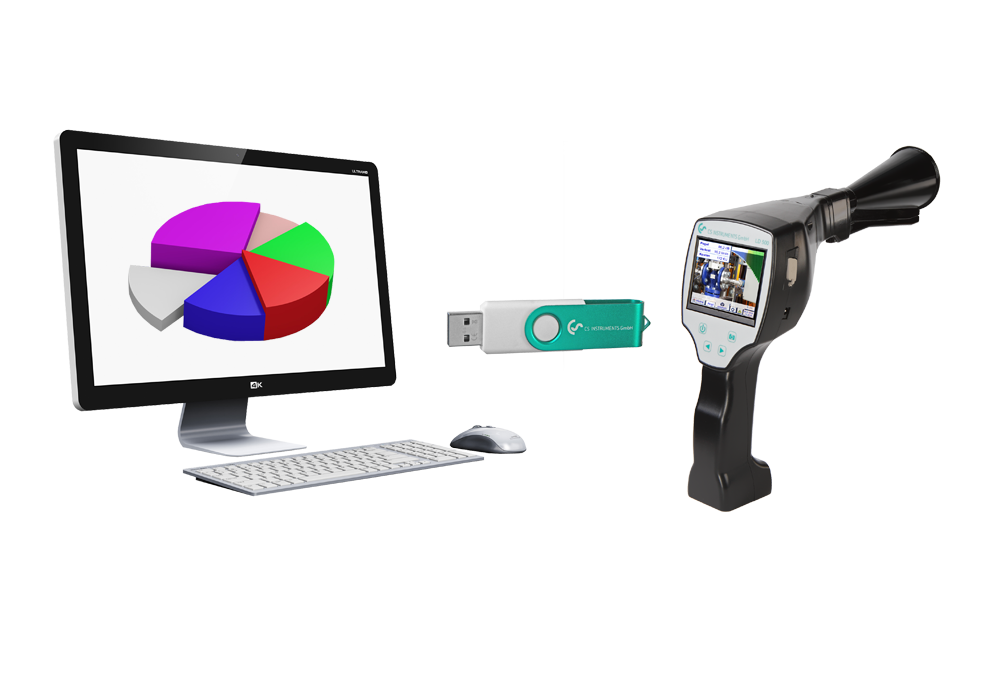
For detailed ISO 50001 reports. Gives an illustrated overview on the detected leaks and possible savings.
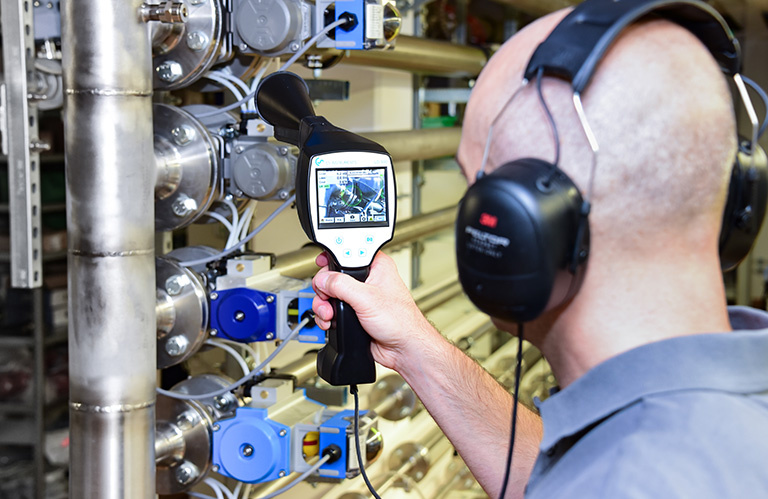
While the LD450 Leak detector already locates Leakages very reliably, our LD500 can also calculate the effects of these Leakages, giving the user the greatest possible transparency regarding potential cost savings. If you are not sure which Leak detection device is the right choice for your application, contact our experts. We will be happy to help you find the right device.
| Leak size | Air loss | Energy loss | Costs | |||
| Diameter (mm) | 6 bar (l/s) | 12 bar (l/s) | 6 bar (kWh) | 12 bar (kWh) | 6 bar (€) | 12 bar (€) |
| 1 | 1,20 | 1,80 | 0,30 | 1,00 | 504,- | 1.680,- |
| 3 | 11,10 | 20,80 | 3,10 | 12,70 | 5.208,- | 21.336,- |
| 5 | 30,90 | 58,50 | 8,30 | 33,70 | 13.944,- | 56.616,- |
| 10 | 123,80 | 235,20 | 33,00 | 132,00 | 55.440,- | 221.760,- |
(Source: Compressed air efficiency, kWh x 0.21 € x 8000 operating hours per year)
Leakages are the Achilles heel of all compressed air and gas networks. According to various studies, Leak detection and the sealing of Leakages can save an average of around 30% of compressed air costs. Regular inspection and consistent elimination are therefore essential. Under certain conditions, the initial investment in Leakage measuring devices is also subsidised by BAFA (further information can be found in our news section).
Our Leakage measuring devices are typically used, for example, for Leak detection in Compressedair systems or as part of leak testing of unpressurised systems. The principle of the detection devices is based on ultrasonic leak detection. Our LD devices convert the inaudible ultrasonic waves generated by Compressed air leaks into audible sound, making them very easy for the user to localise.